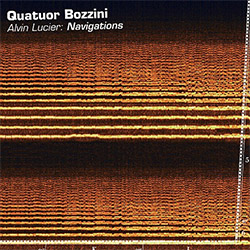
Performing four of avant composer Alvin Lucier's works composed between 1991 and 2004, the Montreal-based Quatuor Bozzini (Clemens Merkel on violin, Alissa Cheung on violin, Stephanie Bozzini on viola, and Isabelle Bozzini on cello) focus on Lucier's works of sonic exploration, including the intensely harmonic interactions of the album's title work.
Out of Stock
Quantity in Basket: None
Log In to use our Wish List
Shipping Weight: 3.00 units
Sample The Album:
Alvin Lucier-composer
Clemens Merkel-violin
Alissa Cheung-violin
Stephanie Bozzini-viola
Isabelle Bozzini-cello
Click an artist name above to see in-stock items for that artist.
UPC: 771028372829
Label: Collection QB
Catalog ID: CQB 2128
Squidco Product Code: 30153
Format: CD
Condition: New
Released: 2021
Country: Canada
Packaging: Cardboard Gatefold
Recorded at the Église Sainte-Théodesie, Calixa-Lavallée, Quebec, Canada on 18-20 August 2020 by Carl Talbot.
"While listening to this new performance of Navigations, I was thinking about the earlier performance I heard, but somehow I don't seem to be able to find that CD by Wergo. The actual title is "Navigations for Strings", and this work composed by Alvin Lucier in 1991 and the closing piece of a five-part CD, as performed by Quatuor Bozzini. Lucier also composed the other four pieces and even while I have a considerable hefty book on my shelves from him, these compositions are not mentioned, so I am not entirely sure how they 'work'. As with many of Lucier's compositions, there is usually conceptual reasoning behind it, a plan that is executed. It is interesting to know this, but is it essential for enjoying the music? Perhaps not. The title piece is the longest here and the opening "Disappearances" follows that in length; it also follows it in musical direction. In both of these pieces, the string quartet plays long, sustaining tones, with "Disappearances" being more 'in your face' and "Navigations for Strings" more like an easy flow. There are two versions of "Group Tapper", which is the group version of "Tapper", for solo violin, but I assume now performed by the players of Quatuor Bozzini. Much to my surprise, this is a rhythmic piece, and I assume by using the bow as a mallet upon the surfaces of the violins, alto violin and cello. The longer of the two seems to be spacing out the intervals between the various 'hits', and over its eleven minutes gradually be dying out. In the middle is "Unamuno", "for four equal voices (1994)" and this is an eerie piece of music. With the strings singing like ghostly voices, this is like the soundtrack for a haunted mystery flick. There are three pieces here that are 'textbook'Lucier pieces, sustaining, sine wave-like but entirely along with the sounds of real instruments, closely knit together and beautiful, plus two pieces that were quite the surprise, but of course, there then I reminded Silver Streetcar For The Orchestra, played on an amplified triangle and it all made sense. I just need to brush up my knowledge on Lucier again, I thought. This excellent CD is a perfect reminder to do so!"-Frans de Waard, Vital Weekly
"Few top tier string quartets have been as devoted to experimental music as the Montréal ensemble Quatuor Bozzini, who routinely bring a stunning rigour to everything they play, whether the radical work of Swiss composer Jürg Frey or key Canadian figures such as Linda Catlin Smith, Cassandra Miller and Martin Arnold. This new album focuses on the music of Alvin Lucier, one of the most enduring and consequential sonic explorers of the last half-century, and the group's razor-sharp precision and empathy helps bring the gripping psychoacoustics of his research into dynamic relief.
The album is bookended by two conventional yet open-ended string quartets, starting with the 1994 composition Disappearances originally written for Lucier's students at Wesleyan University, and closing with the 1991 piece Navigations for Strings, previously recorded by Arditti. They feel like companion pieces. The first is built from harmonically rich, unison long tones that seem to float towards eternity, but eventually one musician slowly, almost imperceptibly, raises or lowers their individual pitch, incrementally followed by the others to produce acoustic beating with ever-changing rhythmic patterns, all contained within an immersive sustain. It's the kind of work that could go on for hours, but this version clocks in at nearly 17 minutes, generating an immersive sonic experience at the heart of Lucier's ongoing fascination with the science of sound.
In between the group perform two iterations of the 2004 piece Group Tapper, an adaptation of a piece written for violinist Conrad Harris - and recently featured in an hour long workout by his String Noise duo on a Black Truffle album - in which the musicians thwack at the bodies of their instruments with the butt end of a bow. Each one taps out different rhythms, but the real pleasure is observing how the percussive sounds fill the space they're played in, as the musicians slowly move in the room, perpetually altering the sonic profile. Unamuno was written as a vocal piece, with each singer intoning a single pitch in a four-tone cluster, but the Bozzini's complement the voice with strings. Lucier is brilliant, but his music always works best when performed by the truly dedicated."-Peter Margasak, The Wire
Get additional information at Vital Weekly
Artist Biographies
• Show Bio for Alvin Lucier "Alvin Lucier was born in 1931 in Nashua, New Hampshire. He was educated in Nashua public and parochial schools, the Portsmouth Abbey School, Yale, and Brandeis and spent two years in Rome on a Fulbright Scholarship. From 1962 to 1970 he taught at Brandeis, where he conducted the Brandeis University Chamber Chorus, which devoted much of its time to the performance of new music. In 1966, along with Robert Ashley, David Behrman and Gordon Mumma, he co-founded the Sonic Arts Union. From 1968 to 2011 he taught at Wesleyan University where he was John Spencer Camp Professor of Music. Lucier lectures and performs extensively in Asia, Europe and The United States. He has collaborated with John Ashbury (Theme) and Robert Wilson (Skin, Meat, Bone). His recent sound installation, 6 Resonant Points Along a Curved Wall, accompanied Sol DeWitt's enormous sculpture, Curved Wall, in Graz, Austria, and in the Zilkha Gallery, Wesleyan University in January 2005. Recent instrumental works include Coda Variations for 6-valve solo tuba; Twonings for cello and piano; Canon, commissioned by the Bang on a Can All-Stars, and Music with Missing Parts, a re-orchestration of Mozart's Requiem, premiered at the Mozarteum, Salzburg in December 2007. In October 2012 Two Circles, a chamber work, commissioned by The Venice Biennale, was premiered there by the Alter Ego Ensemble and in December 2013 a new work, December 12th, was performed by the Ensemble Pamplemousse at the Issue Project Room, Brooklyn and Firewood, performed in March 2014 by the Bang on a Can All Stars at Merkin Hall, New York. Lucier has recently completed two new chamber works: Orpheus Variations for solo cello and seven wind instruments and Hanover for violin, alto and tenor saxophones, piano, percussion and three banjos. In 2013 Mr. Lucier was the guest composer at the Tectonics Festival in Glasgow, the Ultima Festival, Oslo and gave a portrait concert at the Louvre, Paris, with cellist Charles Curtis. Recent events in 2014 include three evenings of Lucier's works presented by the International Contemporary Ensemble, in Chicago; two concerts at Roulette, performed by the Callithumpian Consort, as well several concerts at The Tectonics Festival, Reykjavik, Iceland. In October 2014 Lucier was honored by a three-day festival of his works at the Stedelijk Museum, Amsterdam. Reflections/Reflexionen, a bi-lingual edition of Lucier's scores, interviews and writings was published by MusikTexte, Köln. In September 2012 the Wesleyan Press published Lucier's latest book, Music 109: Notes on Experimental Music. In 2013 New World Records released a recording of three of Lucier's orchestra works. Alvin Lucier was awarded the Lifetime Achievement Award by the Society for Electro-Acoustic Music in the United States and received an Honorary Doctorate of Arts from the University of Plymouth, England. In November 2011 Wesleyan University celebrated Alvin Lucier's retirement with a three-day festival of his works." ^ Hide Bio for Alvin Lucier • Show Bio for Clemens Merkel "Clemens Merkel's unconventional sound defines a new sensibility in contemporary music, through its intimate purity of tone, its settled understanding of microtonal or unconventional harmonic language, and its unhurried sensitivity. He is well known for innovative interpretations of Bach and John Cage, and is sought after by composers worldwide as an inspiration for new repertoire. His diverse collaborators range from the Wandelweiser collective to Montréal's Musique Actuelle community, and from emerging experimentalists to today's most revered composers. For over a decade, Merkel's unusual sound has fused with that of the Quatuor Bozzini, considered one of the world's leading string quartets. Together they have mentored an entire generation of creators through the Composer's Kitchen; have released numerous critically acclaimed albums on their collection qb label; undertake multiple tours annually to be featured at festivals worldwide; and maintain a profound impact on the music scene across Canada and Europe in particular. They nourish Montréal audiences with unusual self-produced events that bridge worlds and cross boundaries of style, generation and culture. Following an early career in Europe, where he contributed to the continent's leading ensembles, Merkel has made Montréal his home since 2000. He supports and advocates for new music in Québec and in Canada, and is regularly sought after as speaker, curator and adviser. His presence is felt in academia as well, through articles written for the Revue Circuit, and through his teaching at Concordia University. He's a passionate chef and lives in Montréal's Portuguese neighborhood together with his wife Isabelle Bozzini and children Félix and Béatrice." ^ Hide Bio for Clemens Merkel • Show Bio for Alissa Cheung " "... classical music without pretence... " is Alissa Cheung's approach to her multi-faceted career. A native of Edmonton (Alberta) violinist and composer, Ms Alissa Cheung (BSc '07, BMus '09, MM '13), is a tenured member of the Edmonton Symphony Orchestra (ESO) since 2010 and will move to Montréal in January 2015 to join the Bozzini Quartet. She has been involved with the Alberta Baroque Ensemble, and has performed as a soloist and chamber musician in Canada, USA, Europe and Japan. Career highlights include performances at Carnegie Hall and Suntory Hall, and solos with the ESO and the Kitchener-Waterloo Chamber Orchestra. Ms Cheung has been featured in Vue Weekly Magazine and Edmonton Sun, and was aired on CBC, CKUA, and WKPN Radio. An adamant interpreter of new music, Alissa has performed numerous contemporary works and was an Artist in Residence at the Bang on a Can Summer Festival (2011), at the and at the Lucerne Festival Academy (2013). As a composer, her works have been performed at the Tonus Vivus Festival of New Music (Edmonton), Jordan Hall (Boston), Morse Recital Hall (New Haven, CT), and the Conservatoire de musique de Montréal. Upcoming projects include a commission by the Arx Duo and the Bass Line Road Ensemble. Ms Cheung studied composition with Hannah Lash (Yale) and Piotr Grella-Mozejko (Edmonton). In addition to private teaching, Ms Cheung has been Sessional Instructor at King's University College and faculty member of the Alberta College Conservatory of Music. Educational outreach initiatives include being a Teaching Artist with ESO's Adopt-a-Player Program and with the National Arts Centre's Music Alive Program. Ms Cheung's principal violin teachers were Marian Moody, Ranald Shean, Broderyck Olson (Edmonton), Thomas Williams (McGill), and Ani Kavafian (Yale). Other influential coaches include Malcolm Lowe, Mark Fewer, Rafael Rosenfeld, Kyoko Hashimoto, and members of the former Tokyo, Juilliard and Concord string quartets." ^ Hide Bio for Alissa Cheung • Show Bio for Stephanie Bozzini "Stéphanie Bozzini. Born Montréal, Québec, 1974. Performer (viola) Stéphanie Bozzini is a founding member of the Bozzini Quartet, a new music string quartet which performs regularly in major festivals throughout Canada, the United States, Europe and South America. Her curiosity and interest in a number of musical styles, from historically informed period instrument playing to contemporary improvisation, have led her to become a remarkably versatile musician. Solo performances include Huddersfield (UK), Ostrava Days Festival (Czech Rep), NY MUSIK (Sweden), and REDCAT CalArts (Los Angeles). She is principal viola with Arion, and plays regularly with other baroque music groups including Tafelmusik, Theatre of Early Music and SMCQ. Stéphanie has been a long-time collaborator with contemporary ensembles Bradyworks and Kore, as well as Ensemble Lunaire (Zürich). Major orchestral engagements include the Tonhalle of Zurich and the Winterthurer Stadtorchester, and chamber orchestras such as I Musici and Les Violons du Roy. Other chamber music projects have led to performances at The Banff Centre for the Arts, the Tonhalle Zurich, and the Festival des Îles du Bic. Stéphanie Bozzini teaches viola at the Music Department, Concordia University in Montréal." ^ Hide Bio for Stephanie Bozzini • Show Bio for Isabelle Bozzini "Isabelle Bozzini. Born Montréal, Québec, 1969. Performer (cello). A passionate chamber player, cellist Isabelle Bozzini is dedicated to exploring two parallel worlds - new music of all kinds and music on period instruments. This endeavour continuously challenges her and nourishes her artistic aspirations. She is a founding member of the Quatuor Bozzini which since its inception in 1999 has become one of Canada's leading string quartets on national and international scenes. Playing close to forty concerts per year, the Bozzinis produce their own concert series in Montréal including the Salon des compositeurs + Composer's Kitchen event. They tour several times per year in Europe, the US and Canada and have launched the label collection qb in the Fall of 2004 in collaboration with DAME. Isabelle Bozzini also works with Kore Ensemble, and various improvising artists such as Malcolm Goldstein, François Houle, Benoît Delbecq, Diane Labrosse and Jean Derome. Having collaborated for many years with Joël Thiffault and the Montréal Baroque Orchestra, Isabelle Bozzini now plays regularly with Ensemble Arion. She also plays with Idées Heureuses, Ensemble Caprice, the Studio de Musique Ancienne de Montréal, and French harpsichordist and conductor Hervé Niquet." ^ Hide Bio for Isabelle Bozzini
11/20/2024
Have a better biography or biography source? Please Contact Us so that we can update this biography.
11/20/2024
Have a better biography or biography source? Please Contact Us so that we can update this biography.
11/20/2024
Have a better biography or biography source? Please Contact Us so that we can update this biography.
11/20/2024
Have a better biography or biography source? Please Contact Us so that we can update this biography.
11/20/2024
Have a better biography or biography source? Please Contact Us so that we can update this biography.
Track Listing:
1. Disappearances 16:46
2. Group Tapper 5:16
3. Unamuno 5:21
4. Group Tapper 10:59
5. Navigations For Strings 19:02
Ambiances Magnetiques
Compositional Forms
Stringed Instruments
Quartet Recordings
Musique Actuelle
Canadian Composition & Improvisation
Staff Picks & Recommended Items
New in Compositional Music
Search for other titles on the label:
Collection QB.


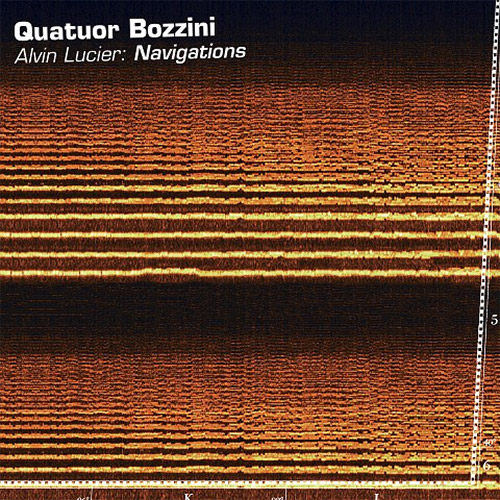
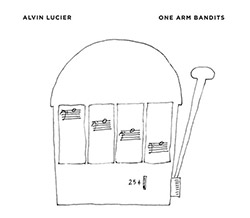
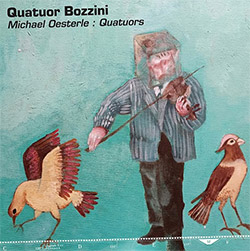





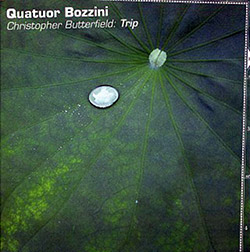
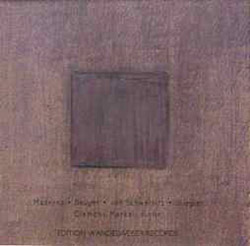
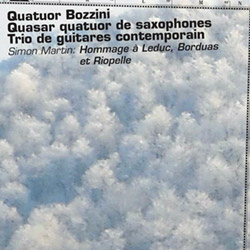
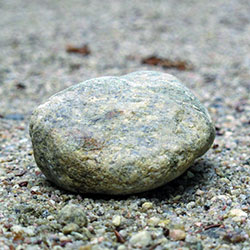
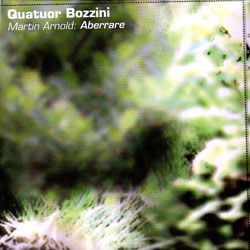
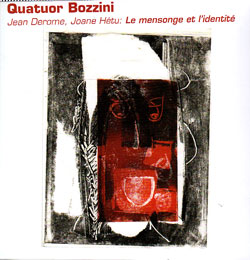
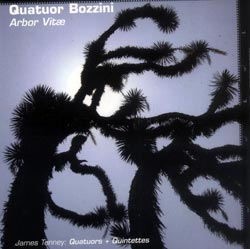
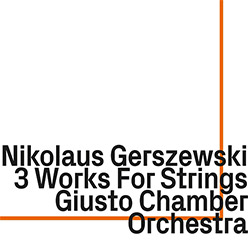
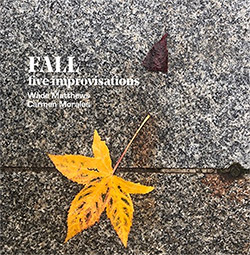
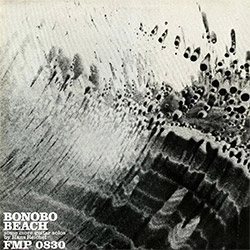
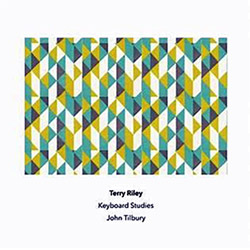
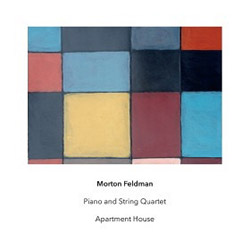

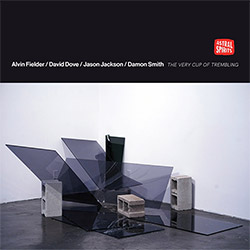
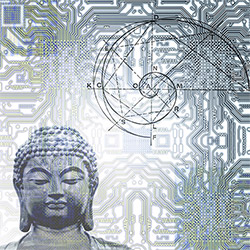
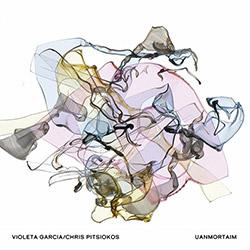


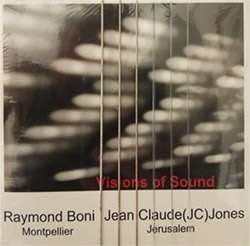


![Guy, Barry / Ken Vandermark: Occasional Poems [2 CDs]](https://www.teuthida.com/productImages/misc4/34849.jpg)
![Novoa / Carter / Mela Trio: Vol.1 [VINYL]](https://www.teuthida.com/productImages/misc4/35236.jpg)


![Elephant9 : Mythical River [VINYL]](https://www.teuthida.com/productImages/misc4/34624.jpg)
![Evans, Peter (Evans / Eldh / Black): Extra [VINYL]](https://www.teuthida.com/productImages/misc4/35279.jpg)

![McPhee, Joe: Straight Up, Without Wings [BOOK]](https://www.teuthida.com/productImages/misc4/35454.jpg)
![Jeck, Philip: rpm [2 CDs]](https://www.teuthida.com/productImages/misc4/35455.jpg)













![Barker / Parker / Irabagon: Bakunawa [VINYL]](https://www.teuthida.com/productImages/misc4/35533.jpg)
![Blaser, Samuel / Marc Ducret / Peter Bruun: Dark Was The Night, Cold Was The Ground [VINYL 10-inch]](https://www.teuthida.com/productImages/misc4/35492.jpg)








![Warren, Kenny (Warren / Hoffman / Ellman): Sweet World [VINYL]](https://www.teuthida.com/productImages/misc4/35451.jpg)




![Blake, Ran / Dave Knife Fabris: Live Amsterdam 2006, First Visit [CD + POSTCARDS]](https://www.teuthida.com/productImages/misc4/35275.jpg)













![DNS: Taking Big Bites Of The Khandas Three Cafes Deep [2 CDs]](https://www.teuthida.com/productImages/misc4/35334.jpg)




![Cleaver, Gerald: The Process [VINYL]](https://www.teuthida.com/productImages/misc4/34966.jpg)




![Alva Noto: HYbr:ID II [VINYL 2 LPs]](https://www.teuthida.com/productImages/misc4/35201.jpg)

![Baron, Derek / Luke Martin: Distinct and Concealed [CASSETTE + DOWNLOAD]](https://www.teuthida.com/productImages/misc4/35079.jpg)

![Lyle, Erica Dawn : Colonial Motels [CASSETTE + DOWNLOAD]](https://www.teuthida.com/productImages/misc4/35080.jpg)









![Sanna, Claudio: Compositori Sardi Contemporanei II [2 CDs]](https://www.teuthida.com/productImages/misc4/35317.jpg)







![Zurria, Manuel: Fame di Vento [3 CDs]](https://www.teuthida.com/productImages/misc4/35167.jpg)

![Granberg, Magnus / Nattens Inbrott / Skogen: Holde Traume, Kehret Wieder! [2 CDs]](https://www.teuthida.com/productImages/misc4/35038.jpg)
![Frey, Jurg: Outermost Melodie [2 CDs]](https://www.teuthida.com/productImages/misc4/35039.jpg)

![Pavone, Jessica: Reverse Bloom [VINYL]](https://www.teuthida.com/productImages/misc4/34895.jpg)




![Modney (Modney / Wooley / Gentile / Roberts / Pluta / Symthe / ...): Ascending Primes [2 CDs]](https://www.teuthida.com/productImages/misc4/34852.jpg)









![Elephant9 with Terje Rypdal: Catching Fire [VINYL 2 LPs]](https://www.teuthida.com/productImages/misc4/35355.jpg)
![Deerlady (Obomsawin, Mali / Magdalena Abrego): Greatest Hits [VINYL]](https://www.teuthida.com/productImages/misc4/34876.jpg)




![Haino, Keiji: Black Blues [2 CDs]](https://www.teuthida.com/productImages/misc4/35109.jpg)



![Surplus 1980: Illusion of Consistency [CD]](https://www.teuthida.com/productImages/misc4/35069.jpg)
![Staiano, Moe: Away Towards the Light [VINYL + DOWNLOAD]](https://www.teuthida.com/productImages/misc4/35037.jpg)



![Caveira (Gomes / Sousa / Abras / Ferrandini): Ficar Vivo [VINYL]](https://www.teuthida.com/productImages/misc4/34643.jpg)
![Gregg, J. J. / David Van Auken: Lunar Prairie [CD w/ DOWNLOAD]](https://www.teuthida.com/productImages/misc4/34611.jpg)

![Coultrain: Mundus [VINYL]](https://www.teuthida.com/productImages/misc4/32439.jpg)
![Mattin: Songbook #6 [VINYL]](https://www.teuthida.com/productImages/misc4/27317.jpg)
![Punkappella: Wake Up [7-inch VINYL]](https://www.teuthida.com/productImages/misc4/17519.jpg)
![Residents, The: WARNING: UNiNC.: Live And Experimental Recordings 1971-1972 [VINYL 2 LPs]](https://www.teuthida.com/productImages/misc4/31521.jpg)
![Coultrain: Phantasmagoria [VINYL]](https://www.teuthida.com/productImages/misc4/30142.jpg)
![Lennon, Sean Ono: Asterisms [VINYL]](https://www.teuthida.com/productImages/misc4/34517.jpg)

![Coley, Byron: Dating Tips for Touring Bands [VINYL]](https://www.teuthida.com/productImages/misc4/17906.jpg)

![Lost Kisses: My Life is Sad & Funny [DVD]](https://www.teuthida.com/productImages/misc4/lostKissesDVD.jpg)